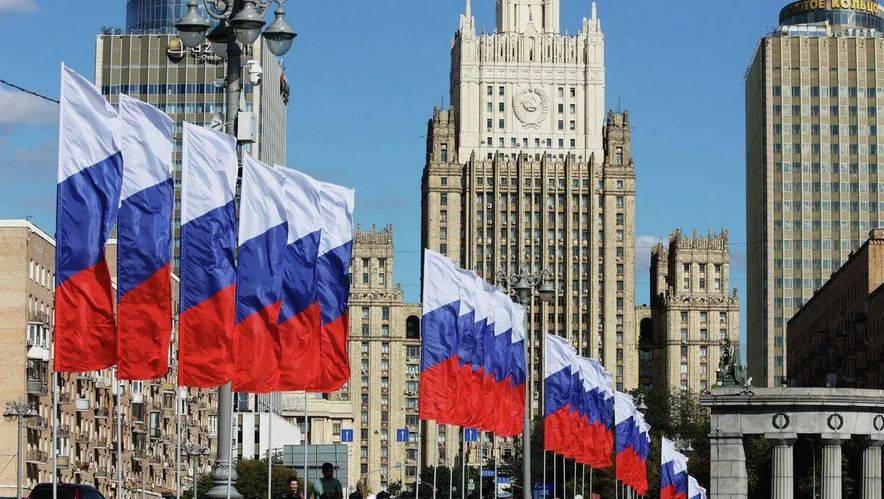1657 Views
The Great Unraveling: How a US Plan to Seize Russian Assets Could Shatter Global Financial Trust
While tensions between the West and Moscow persist, US senators have introduced a bill in the Senate aimed at approving the use of Russian assets for the benefit of Ukraine under a populist guise. This move has recently become a widely reported and contentious issue.
The bill, proposed by a group of US senators from both major political parties, seeks to transfer a portion of the frozen Russian assets in the United States to Ukraine. This has prompted a sharp reaction from Moscow against what it deems an anti-Russian plan. Shortly after the news spread widely in international media, Kremlin officials formally responded, demanding legal action and labeling the US move as outright theft. They stated that such an action constitutes a dangerous precedent in the global financial system and would undoubtedly undermine other countries' trust in the security of their capital held in the West.
In this regard, Russian authorities have emphasized that if this coercive plan is implemented, Moscow will adopt retaliatory measures. These could include seizing Western assets on Russian soil or filing lawsuits in international courts.
Russia has described this action as "the theft of sovereign assets" and insists that it constitutes a blatant violation of international law and infringes upon the principle of respect for state property. Accordingly, the Kremlin has issued an executive order establishing a mechanism that allows the Russian government to seize and confiscate assets belonging to the US and its allies in Russia if its own assets are confiscated. This act is a deterrent and logical response to the unilateral pressures and coercion by the West against Moscow and can be considered a form of reciprocal seizure.
Meanwhile, predominantly Western experts warn that implementing this plan could weaken foreign investors' trust in the Western financial system, reduce foreign investment flows, and ultimately strengthen alternative, non-Western financial channels. This would effectively accelerate the trend toward the multipolarization of the global financial system. Countries concerned about the fate of their capital under such circumstances are now testing other avenues, including alignment with non-Western blocs and different, new payment systems. Consequently, the longstanding dominance of the US dollar in global markets and international transactions will suffer a significant blow.
Another group of independent analysts view this plan as indicative of the Western financial system moving further away from justice and neutrality, transforming the international financial system into a political tool to increase pressure and influence over countries. In such a scenario, authorities in countries like China, Brazil, India, or even Saudi Arabia, feeling threatened regarding the security of their assets in case of disputes with the West, will seek alternative ways to protect their global capital and assets. In this context, it seems the shift in currency reserves from the US dollar to the Chinese yuan, gold, and even other currencies will accelerate.
Furthermore, Russian officials, taking preemptive decisions, have stated that if this plan is approved and implemented, the level of diplomatic relations with the United States could be downgraded, and political and economic countermeasures could be taken. They have considered a political dimension to the implementation of this plan – namely, reducing diplomatic relations with Washington and Western countries – arguing that proposing such a decision signifies disrespect for international law and the trampling of fundamental principles of interstate relations.
It is worth noting that although Russia's reactions to the US plan of transferring its frozen assets to Ukraine might have negative short-term effects on the Russian economy, and its reciprocal response might even be limited – potentially leading to increased controls within the Russian economy, restrictions on foreign investment, a negative impact on Russia's recent economic growth, and increased economic pressure – the continuation of this situation and the misuse of frozen assets in the West could ultimately accelerate the process of financial multipolarization.
In conclusion, this move proposed by US senators is not merely a financial action. It entails a series of consequences, including reciprocal seizure by Russia, which endangers accessible Western capital. Furthermore, coupled with diplomatic threats, it will further strain political relations with Washington. This series of actions and reactions on the global stage will reduce countries' trust in investing in the West, consequently leading to the multipolarization of international financial transactions and a subsequent decline in the power of the US dollar. Although these pressures may create limitations for the Russian economy, they will serve as a serious incentive for strengthening non-Western cooperation, developing independent financial paths, new channels, and increasing internal resilience.
Translated by Ashraf Hemmati from the original Persian article written by Navid Daneshvar
https://www.aljazeera.com/news/2023/12/22/russia-may-sever-ties-respond-in-kind-over-seizure-of-its-assets
https://www.reuters.com/world/europe/russia-says-seizing-its-frozen-assets-would-set-dangerous-precedent-2024-04-22/
https://www.reuters.com/world/europe/russia-says-seizing-its-frozen-assets-would-set-dangerous-precedent-2024-04-22/
https://lenta.ru/news/2024/11/09/v-mid-rossii-zayavili-ob-ugroze-razryva-dipotnosheniy-s-ssha

Comment
Post a comment for this article